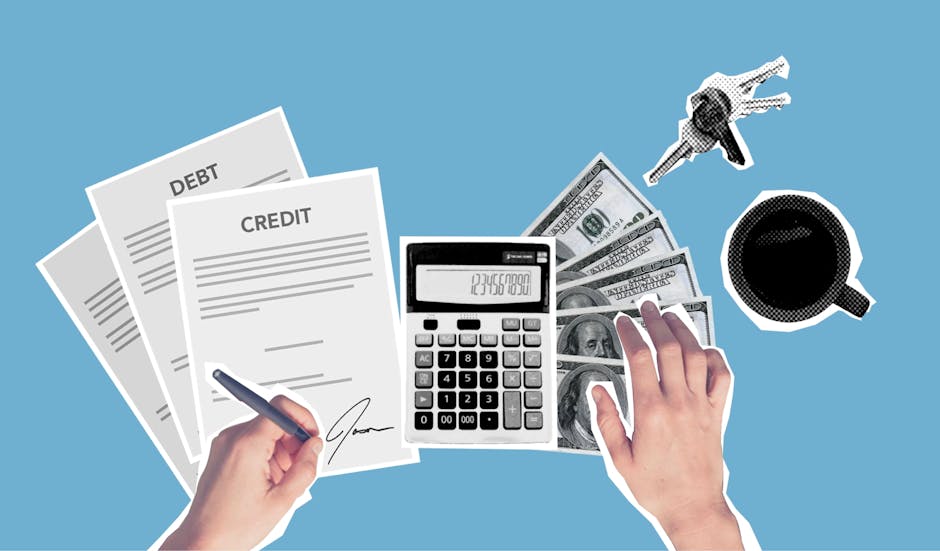Introduction
In the dynamic landscape of business finance, a robust credit score can be your steadfast ally. Just as individuals need strong credit to access optimal loan rates and financial opportunities, businesses also require good credit to secure favorable terms from lenders. This brings us to an often-overlooked facet of business management – Business Credit Repair.
The foundation of robust commercial success is often associated with strategic acumen, market understanding, and product or service quality. While all of these factors indubitably play crucial roles, the importance of good business credit often lurks in the shadows, undeservedly neglected. Business credit repair, more specifically, is a domain that can feel labyrinthine, overwhelming even the most seasoned entrepreneurs. Yet, understanding its fundamentals can be a genuine game changer leading to improved business operations and growth.
In the forthcoming sections, we’ll delve into the nuts and bolts of business credit, the situations necessitating credit repair, signs of poor credit health, and the comprehensive steps you can take towards credit repair. It’s time for you and your business to build a strong financial foundation and journey confidently into the world of financial opportunities. After all, a good business credit score isn’t just a number; it’s your business’s passport to a world of unseen opportunities.

Understanding Business Credit
Before we delve into the nuances of maintaining and repairing business credit, it’s vital to understand what it constitutes. In its most elemental form, business credit is a company’s financial reputation. It is the track record of a business meeting its financial obligations such as paying suppliers or lenders on time. This allows lenders, suppliers, and other interested parties to gauge the financial health of your business, just like the way personal credit scores reflect an individual’s financial trustworthiness.
So, you might be asking: what’s the difference between business credit and personal credit? Although they are conceptually similar, their scopes differ significantly. Personal credit can be thought of as an analysis of an individual’s financial trustworthiness, built around personal debts like credit card bills, personal loans, or mortgages. On the other hand, business credit is solely concerned with the finances of businesses. It takes into account business debts, repayment timelines, business assets, and cash flow, among other things.
While both types of credit scores serve to determine reliability, a key distinguishing factor is the information sources used to compile them. Business credit information typically comes from vendors, suppliers, or lenders, while personal credit information is derived from credit card companies, financial institutions, and mortgage bankers. Coming to the calculation aspect, the exact methods of calculation might differ, but essentially, the better your credit management, the higher the credit score.
By understanding this fundamental breakdown of what business credit entails and how it differs from personal credit, you can better appreciate the necessity of business credit repair and maintenance. Because, in many ways, your company’s financial standing is its reputation.

Understanding the Need for Business Credit Repair
Just like physical health, financial health is often most valued when it is lost. This principle holds true especially in the context of business credit.
When is Business Credit Repair Needed?
Various situations can lead to the necessity for credit repair, including unexpected downturns in the market, cost overruns in business operations, or even administrative errors. These scenarios can result in a negative credit report.
However, this circumstance should not be met with disheartenment. Instead, businesses should treat it as an opportunity to fix, grow, and strengthen their financial standing. This exercise comprises more than just patchwork on a damaged report – it calls for an overhaul of financial habits, fostering a culture of transparency and consistent vigilance around business credit.
The Cornerstone of Successful Businesses – Good Credit
But why exactly is it vital to fix business credit? That’s because credit significantly impacts a firm’s ability to grow and succeed.
Good business credit opens up financial avenues that might otherwise be challenging to access. From business loans to trade credit, the health of your business’s finances can make or break opportunities. In the world of business, creditworthiness can act as a rudder, steering your endeavor towards success.
Moreover, knowing that financing conditions, interest rates, and even trade terms are deeply influenced by your business’s credit standing, makes this an indispensable asset. Lack of attention to nurturing good credit can lead to substantial additional costs in high interest rates, unfavorable payment terms, and potential denial of credit.
The Bigger Picture – Credit Enhancement
Fixing business credit isn’t just about resolving an issue; it’s about creating a more resilient, effective, and forward-thinking business model. Therefore, the primary theme here isn’t merely credit repair, but credit enhancement.
Conclusion
In conclusion, the need for business credit repair arises not just from financial blemishes but also from the pursuit of business growth and success. The importance and benefits are plentiful, paving the way for robust financial health that could stand as the cornerstone of a thriving business.

Signs of Poor Business Credit
The cornerstone of good financial health in the business landscape is healthy credit, which makes recognizing the hallmarks of poor business credit doubly important. Acute awareness and the ability to self-assess your credit status are like seatbelts, providing protection from potential financial accidents and a swift recovery route.
Some warning signs of poor business credit could creep in subtly over time, or they might come out of left field. The latter typically happens in the small business arena due to lack of effective credit management or disagreements with creditors.
Common signs include higher interest rates from lenders and financial institutions, abrupt changes in credit terms from suppliers, denial of credit or loans, excessive debt, consistently late payments, or simply an underwhelming credit score. It’s also worth mentioning that a lack of any credit history can be as detrimental to your business credit as a poor one.
Self-assessing your credit status can be done by regular monitoring of your business credit reports, keeping an eye on your business’s credit score, and analyzing your financials for any recurring patterns of late or missed payments or unusually high debt levels.
It’s important to remember that an occasional late payment or increase in debt is not the end of the world. Problems can occur, however, when these issues become a pattern and start to run rampant. In such cases, it’s an unmistakable SOS from your business credit, and a wakeup call to take action.

Steps to Repairing Your Business Credit
Repairing your business credit isn’t a sprint, rather it’s a marathon that requires time, dedication, and strategic planning. Here’s a breakdown of some crucial steps to consider:
Checking and Understanding Your Credit Reports
A mandatory first step involves obtaining your business credit reports from the major credit bureaus – Experian, Equifax, and Dun & Bradstreet. Most businesses don’t realize that various credit bureaus may hold different information about their credit, thus it’s crucial to cross-verify.
Understanding your credit report is the next essential step. It can be a tad daunting at first glance with all its codes and numbers. Familiarize yourself and pay close attention to the “Payment Status” or “Rating.” This is the main determiner of your business credit score.
Disputing Errors
If you spot errors or discrepancies within your reports, don’t panic. It’s not uncommon. What’s essential is to act promptly. Compile all necessary documentation to support your dispute and send a written letter to the respective credit bureau.
Remember this process also demand patience as it can take several weeks, even months before you hear back. Stay on top of it, and remember it’s an integral step in improving your credit score.
Paying off Debts
Weathering the debt storm can be a daunting task, but it’s a quintessential part of credit repair. Evaluate your debts, prioritize repayments based on factors such as interest rates and balances. Don’t be shy to negotiate with creditors for more favorable payment terms. Every paid debt is a step in the right direction.
Building and Maintaining Good Credit Habits
To quote a cliche; “Prevention is better than cure.” Building and maintaining good credit habits is the solution for steady and healthy credit.
So, make timely payments, keep your credit utilization low, and regularly monitor your credit. Keep in mind, business credit is not a one-time game; it’s about continuous effort.
These steps aren’t exhaustive, nor are they a magic wand that will instantly repair your credit. But, they form a solid foundation in your quest to rebuild and maintain your business credit. Remember, every step taken, no matter how small, is progress.

Steps to Repairing Your Business Credit
Checking and Understanding Your Credit Reports
Getting your business credit back on track begins with two intertwined steps: checking your credit reports regularly and understanding what you see in those reports. It might be the less glamorous side of entrepreneurship, but it’s an absolute necessity if you covet a clean financial slate.
Business credit reports are to business owners what medical check-ups are to patients; they give you a detailed look at the health of your business credit. Regular check-ups allow you to spot any anomalies and take immediate action. It’s not something you wait until the end of the year to do. Consistency is key.
Think of your business credit report as a financial X-ray which shows your company’s credit activity. This includes credit inquiries made by lenders or suppliers, payment history, legal actions like defaults, and bankruptcy details, if any. The information in your credit report directly influences your business credit score, impacting your business’s ability to secure loans or negotiate favorable credit terms with suppliers.
You can access your business credit reports through one of the leading credit bureaus such as Experian, Equifax, or Dun & Bradstreet. Once you get your report, it’s time to decode it.
Understanding a business credit report is somewhat akin to unraveling a ball of yarn. It might seem intimidating at first, but once you take the first step, it gets easier. Always start with the summary, which gives you a snapshot of your business’s creditworthiness. Then, move on to the payment history, which is the largest factor influencing your credit score.
Review each section meticulously for accuracy. Any errors found, no matter how minor, could negatively impact your credit score, and should, therefore, be disputed (more on that in the next section).
Remember, comprehending your business credit report isn’t just about scanning the document for errors. It’s about understanding your financial habits better and using that knowledge to build a sturdier credit foundation for your business. Keep in mind – a healthy business credit is synonymous with a healthy business.

Disputing Errors
Disputing errors on your credit report is just as important as having a keen eye to spot them in the first place. This part requires a bit of elbow grease but worry not, we’ve got you covered with a step-by-step guide on how to tackle any discrepancies head-on.
Step 1: Find the Culprits
First things first, identify each and every error in your credit report. These could include incorrect financial information, late payments when you’ve paid on time, or debts listed that aren’t yours.
Step 2: Gather the Proofs
Next up, compile the right documents that support your claim. This could include bank statements, payment records, or any other related documents that can serve as evidence. Remember, solid proof is your best ammunition here.
Step 3: Make Your Case
After gathering your evidence, it’s time to make your case. Write a detailed dispute letter pointing out the errors and explaining why they’re wrong. Attach copies—not originals—of your supporting documents. Keep it clear and no-nonsense, you don’t need to be Dickens to get your point across.
Step 4: Send Your Dispute
Send your letter and copies of the accompanying documents to the credit bureau via certified mail, “return receipt requested,” so you can track the document and know when it’s been received.
Step 5: Wait
Once you’ve filed your dispute, the credit bureaus typically have 30 days to investigate the issue and respond. Yes, patience is a virtue.
Then there’s the part about prevention. An ounce of it is worth a pound of cure, right? The best way to avoid errors later on is to keep your financial documents organized. This includes keeping track of your bills, payments, and any other relevant records. It also helps to read up on the common reasons for credit report errors, so you’re better equipped to steer clear.
While this might seem like a daunting task, these steps are extremely pivotal in maintaining your business credit score. Remember, the benefits of having a clean chit on your credit report far outweigh the effort you put into dispute resolution!

Paying off Debts
In the path towards restoring your business credit, paying off debts is of paramount importance. Debt, in simple terms, is money owed, and in credit circles, it can offer clarity to a lot about your financial capabilities and discipline. It may seem quite Sparta-esque, but being relentless in clearing your debts results in a strong, positive impact on your credit report.
It’s often said in hushed tones that, all debts are not created equal, this is true. Business debts can range from credit card bills to loans and lines of credit. Prioritize paying off high-interest debts as these are the ones that would cause the most damage if left unchecked.
One reliable strategy for paying off your debts is the ‘snowball method’. With this approach, you endeavor to eliminate the smallest debts first while making minimum payments on larger loans. Once the smallest debt is paid off, you roll the money you were paying on that debt to the next smallest balance.
On the flip side, the ‘avalanche method’ suggests that you pay off debts with the highest interest rate first, regardless of the balance. It might take more financial discipline – hey, it’s called ‘avalanche’ for a reason, right? But it’s a solid tactic to limit the amount of interest you pay over time.
Creating a monthly budget to track your income, expenses, and debt repayment can also steer your business debt into the clear. Understanding where your money is going gives you a better handle on how to allocate funds effectively.
Cash flow is king in business, so consider funneling more of your cash flow towards paying off debts. Yes, it’s a bit of a sacrifice. However, in the long run, it results in a cleaner credit report and a healthier, more resilient business.
These methods don’t come with the glitz and glam. They require discipline and a Spartan dedication. However, the reward is a healthier business financial lifestyle, and an improved credit score. So gear up, pay those debts, repair that credit, your business deserves it.

Building and Maintaining Good Credit Habits
Building and maintaining good credit habits is essential for long-lasting credit health. It should become an integral part of your management routine, rather than a sporadic task. Here, we outline some key strategies to help strengthen your credit profile.
1. Consistent Bill Payments
Like clockwork, ensure prompt payment of bills. This forms a significant part of your credit history. You can set reminders or, even better, automate your payments to avoid late or missed bills.
2. Mind Your Credit Usage Ratio
Try keeping your credit card utilization below 30% of your available credit. High usage can raise red flags about your business’s financial situation.
3. Cultivate Diversity in Credit Types
To develop a healthier and more robust credit profile, consider diversifying your credit types. This could mean a mix of trade credit, business credit cards, and small business loans.
4. Regular Credit Report Checks
Regularly monitoring your business credit report is crucial. This is not only for catching errors but also for better understanding your position. Timely interventions can be made if you spot a slip.
5. Maintain Fiscal Discipline
It’s important to separate business finances from personal ones. Resist the temptation to tap into business funds for personal use.
6. Foster Long-term Creditor Relationships
Building solid relationships with lenders and suppliers can lead to better credit terms over time.
7. Adopt a Future-Facing Perspective
Planning your future financial needs ahead of time can help avoid the accumulation of unnecessary debt.
Once integrated, these habits can help mend and fortify your credit against future issues. It’s akin to working out – toning up the weak parts and, with time and consistency, building enduring credit health. These habits form the basis for self-sustained credit repair and are more effective when integrated into the fabric of your operations, rather than being applied as band-aid solutions. Cultivate these habits, and watch your business credit bloom.

Utilizing Professional Credit Repair Services
Navigating the complexities of business credit repair can sometimes be overwhelming. In situations like these, professional help often proves invaluable.
The Role of Credit Repair Services
Credit repair services can be instrumental in helping businesses mend their damaged credit history. They ease your burden by taking on the heavy-lifting:
- Deep Dive Analysis: Professionals dive deep into your credit reports
- Error Disputes: They dispute errors and negotiate with creditors
- Strategic Improvement: They leverage their experience and expertise to strategically enhance your credit score and save your business from potential mistakes resulting from a lack of understanding of the credit world.
Choosing the Right Credit Repair Agency
The choice of a reputable credit repair agency is critical for a successful credit repair journey. Here are some red flags to watch out for when screening potential services:
- Guarantees of drastically improved credit scores overnight
- Requests for payment before any services are rendered
- Lack of transparency about their methods
A good credit repair firm should tailor its approach to your business’s unique needs rather than offering one-size-fits-all solutions.
Due Diligence Before Making a Choice
Before you commit to a credit repair service, be sure to:
- Research their track record
- Check client reviews
- Compare their service packages
A reputable credit repair agency will have a proven history of successful credit repairs and their methods will comply with the rules provided by the Credit Repair Organizations Act (CROA).
Conclusion
While you’re more than capable of managing your business, enlisting professional help for credit repair can expedite the process and prevent potential hassles. By partnering with the right credit repair service, you can speed up your business’s return to financial stability. Remember, a solid credit score isn’t just a number – it’s a testament to the financial health of your business. It plays a key role in decisions made by lenders, investors, vendors, and customers. Therefore, actively maintaining your credit score is non-negotiable for successful and sustainable business operations.

Implementing Credit-Friendly Business Practices
The ongoing journey to healthy business credit requires not only repair and careful management, but also strategic implementation of credit-friendly actions into day-to-day operations. These practices prioritize long-term financial stability and establish a framework for avoiding future credit pitfalls.
The first straightforward step is to pay all bills on time. Timely payments – whether for utilities, vendors, or loans – are key to maintaining good credit. This is because payment history contributes significantly to your credit score. A series of late or missed payments can impact your credit negatively. Automation can be your ally here; consider setting up automatic payments or reminders to eliminate the risk of human error.
Another recommended practice is to separate personal and business finances. This serves to protect personal credit and makes it easier to track business expenses, liabilities, and income. Establishing a dedicated business bank account and applying for a business credit card can aid in this separation.
It’s also beneficial to maintain good relationships with suppliers. Negotiating for better payment terms or even routinely paying them ahead of due dates can cast your business in a good light. Paying earlier than required can also often lead to trade credit, which can bolster your business credit scores.
Maintaining a reasonable debt-to-income ratio is another essential practice. Lenders and credit bureaus view businesses with high debt ratios as risky. Therefore, it’s crucial to keep borrowing within manageable limits and to use credit judiciously.
Finally, just as it benefits an individual, diversifying the types of credit your business uses can demonstrate to lenders that your business is well-rounded in its debt handling. A mix of trade credit, business credit cards, and different types of loans can attest to your business’ ability to manage various forms of credit.
Focus on weaving these recommended credit-friendly practices into your business operations, and you’ll cultivate a strong foundation for positive credit health. This not only assists in preventing future credit mishaps but simultaneously positions your business favorably for future financial endeavors. This commitment to nurturing credit maintenance goes beyond short-term gain—it’s an investment in your business’ long-term success.

Importance of Constant Monitoring and Adjustment
Being diligent and proactive in the realm of business credit is not a one-off task. It’s an ongoing process that requires constant vigilance. A key aspect of managing your business credit health is regular monitoring and adjustment of your credit activities.
Just as you would keep an eye on your financial statements, your credit reports should also be given due attention. Regular checks can help in identifying any discrepancies early and prevent them from spiralling into serious issues. You can use a variety of credit monitoring services for this purpose. Some are free, while others require a minimal fee, but offer a deeper dive into your credit status. Remember, the goal is to ‘know thy numbers,’ to catch mistakes, and to understand your own spending habits.
In addition to monitoring, adjusting your credit activities in response to what you see in your reports is equally critical. If you notice your credit utilization is exceptionally high one month, figure out why and take steps to lower it. If you’re using personal credit for business expenses, stop and switch to a business credit account. Adjustment is about molding your credit behaviour based on your monitoring efforts.
Tools like budgeting apps and financial software can streamline this process, enabling you to keep track of your historical data, set credit goals, and gauge your progress over time. In addition, credit counselling agencies can provide guidance on how best to manage and adjust your credit activities.
To put it simply, responsible credit management is a marathon, not a sprint. It’s a practice of ongoing monitoring, swift correction of errors, and continuous improvement of credit habits. We call it the ‘MCA’ approach – Monitor, Correct, Adjust. It’s a trifecta that has the potential to uplift your credit stature and solidify the financial groundwork for your business.
In conclusion, remember that change is the law of life, and those looking only to the past or present are certain to miss the future. So, observe, learn, adjust, and repeat. This is the key to credit health and financial success.

Conclusion
As we round off this insightful journey through the landscape of business credit repair, it’s clear that a strong business credit profile isn’t just a perk but a fundamental pillar of a thriving enterprise. The importance of fixing and maintaining stellar business credit cannot be overstated; it opens doors to better lending terms, solidifies relationship with suppliers, and injects a sense of credibility and trust in your business’ financial health.
Throughout the article, we’ve not only accentuated the significance of dealing with credit hiccups head-on but also provided an array of tools and strategies that can propel businesses towards a future of financial stability and growth. Remember, taking steps to repair business credit isn’t an express sprint, but a marathon that requires patience, perseverance, and a long-term perspective.
Embrace the siren call of credit repair as a necessary chore on your business agenda rather than a dreadful burden. Utilize professional services if need be, establish credit-friendly business habits, and perpetually monitor and adjust your credit landscape. The execution might seem arduous, but the rewards, as they say, are worth the squeeze.
As a final shower of encouragement, heed this – a tidal wave starts as a mere ripple. Similarly, huge leaps in business credit score begin with small, consistent steps. Every effort towards credit repair counts, no matter how significant or trivial it may seem.
In conclusion, healthy business credit is not just a financial boost, but a powerful lever that could mean the difference between a struggling enterprise and a successful one. Businesses that invest the time and resources into credit repair and maintenance will surely reap the rewards. So, let’s get out there and start making those credit improvements. Your business, in its journey to success, will thank you.